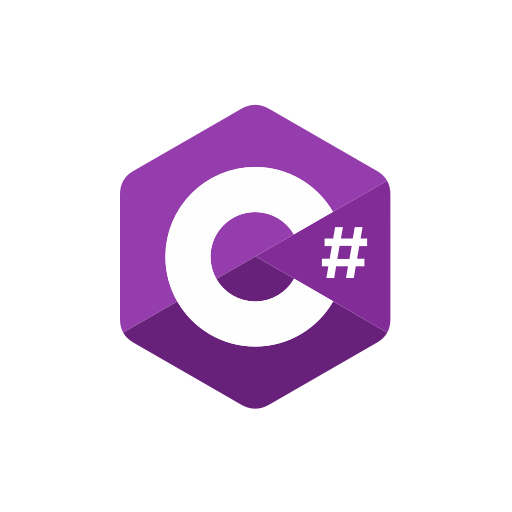- .NET CLR Runtime
- Overview of CLR (Common Language Runtime)
- Execution process in .NET
- Memory management and garbage collection
- Syntax and Lexical Conventions, Datatypes
- Basic syntax and structure of C# code
- Primitive and non-primitive data types
- Value types vs. reference types
- Conditionals, Looping Constructs
- If-else statements, switch-case
- Loops: for, foreach, while, do-while
- Functions
- Defining and invoking functions
- Parameters, return types, and overloading
- Extension methods
- Object-Oriented Programming (OOP)
- Classes and objects
- Inheritance, polymorphism, encapsulation, and abstraction
- Interfaces and abstract classes
- Multithreading
- Basics of threading and Thread class
- Task Parallel Library (TPL)
- Synchronization and thread safety
- Exception Handling
- Try-catch blocks
- Custom exceptions
- Best practices for exception handling
- ADO.NET
- Database connectivity and operations
- DataSet and DataReader
- Connection, Command, and DataAdapter objects
- Delegates and Events
- Delegates, multicast delegates
- Events and event handling
- Anonymous methods and lambda expressions
- LINQ (Language Integrated Query)
- LINQ to Objects, LINQ to SQL, LINQ to XML
- Query syntax vs. method syntax
- Deferred execution and lazy evaluation
- Collections and Generics
- Generic collections (List, Dictionary, etc.)
- IEnumerable and IQueryable interfaces
- Custom generic classes and methods
- Attributes and Reflection
- Applying and creating custom attributes
- Using reflection to inspect and invoke members
- Dynamic type creation
- File I/O and Serialization
- File reading and writing
- Serialization and deserialization in .NET
- XML and JSON handling
- Memory Management and Garbage Collection
- Understanding managed heap and stack
- Garbage collection process
- IDisposable interface and using statements
- Asynchronous Programming (async/await)
- Async methods and Task class
- Using async and await keywords
- Best practices for asynchronous programming
Feel free to contribute to this repository by adding more examples, explanations, and resources related to each topic. Your contributions are greatly appreciated!
